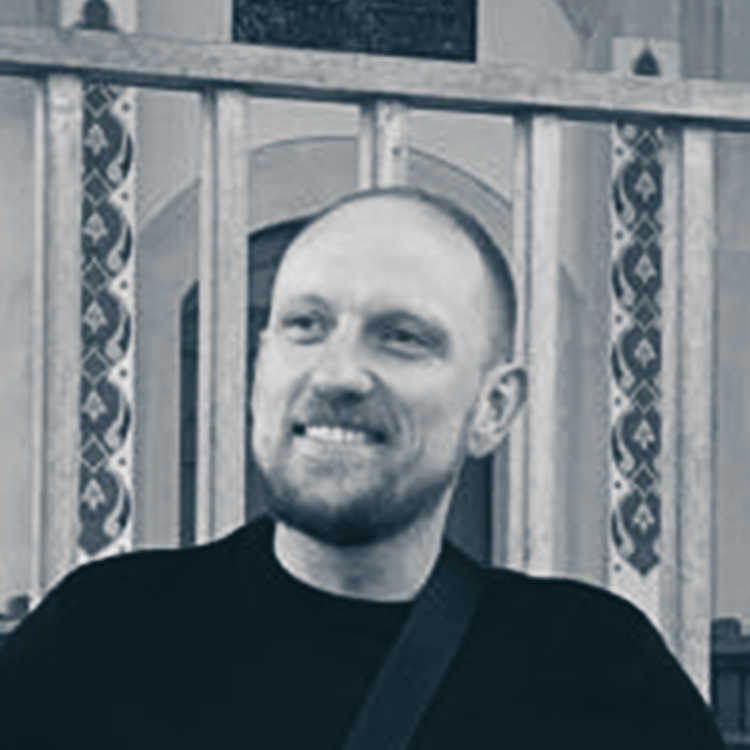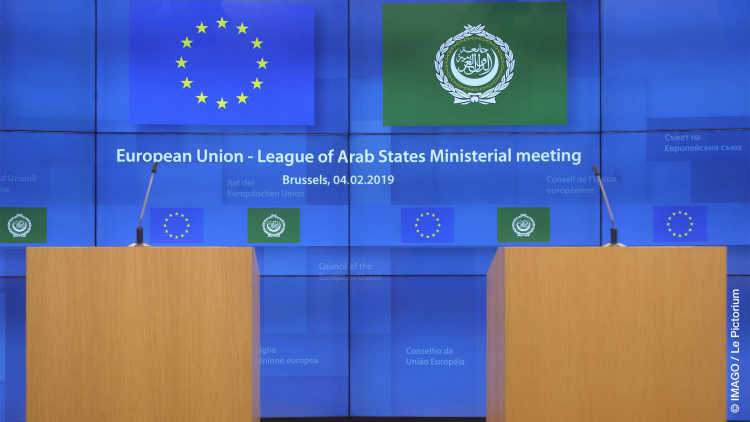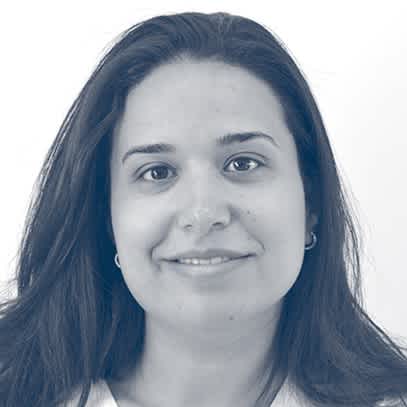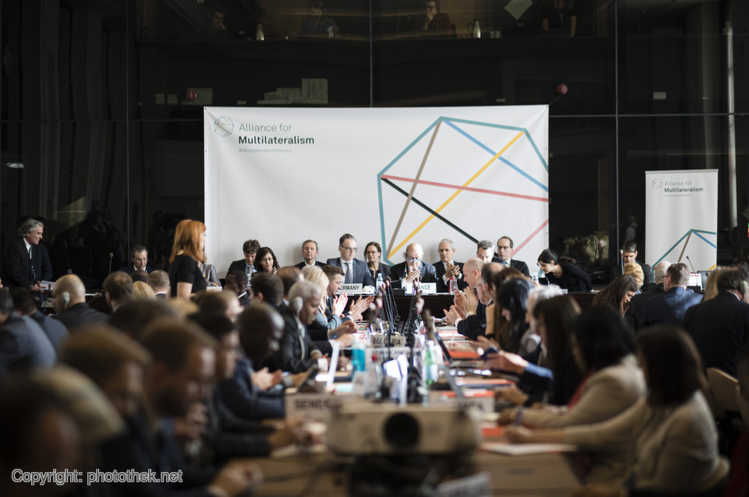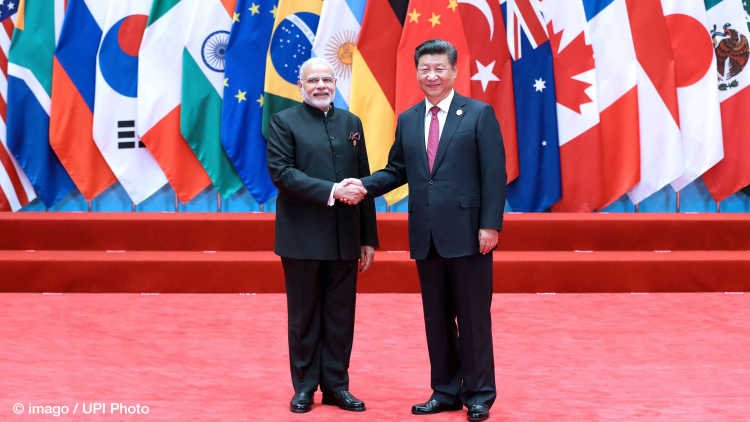- Home
- Publications
- GIGA Focus
- Couscous, Kaftans, and Culture Wars: Algeria and Morocco at UNESCO
GIGA Focus Middle East
Couscous, Kaftans, and Culture Wars: Algeria and Morocco at UNESCO
Number 4 | 2024 | ISSN: 1862-3611

In May 2024 Morocco lodged an official complaint at UNESCO against Algeria for “cultural appropriation” of its national heritage. As the two countries battle over the national origin of couscous, raï music, and women’s ceremonial dress, their diplomatic conflict risks undoing the positive work by UNESCO in the MENA region and deepening the organisation’s political crisis.
UNESCO has increasingly been involved in the reconstruction of destroyed heritage sites after extremist attacks (Mali, Iraq), but these positive developments are threatened by the politicisation of its decision bodies, such as the World Heritage Committee.
Diplomatic relations between Algeria and Morocco at UNESCO have worsened. After collaborating to inscribe intangible cultural objects under shared applications (couscous), each country is now applying individually to inscribe shared objects as exclusively its own (raï music and women’s ceremonial dress).
The Algerian–Moroccan tension risks dividing the Arab bloc and introducing more gridlock within UNESCO, while further accelerating states’ instrumentalisation of the organisation’s brand for their diplomatic aims.
Heritage conservation represents one of UNESCO’s major successes, but there is an urgent need to reform its policies and operating procedures to avoid the fragmentation of its mandate. We are already witnessing the emergence of NGOs and philanthropic organisations, which work with greater flexibility but also raise questions of accountability.
Policy Implications
The current conflict risks seeing the radicalisation of cultural and political competition between countries investing in “authentic tourism.” UNESCO is in danger of devolving into a site of nationalist flare-ups, fuelled by social media controversies and worsened by the lack of autonomy and robust policies within UNESCO’s heritage bodies, as well as the emergence of non-governmental alternatives.
The UNESCO Politics of Post-Conflict Reconstruction
Countries of the Middle East and North Africa (MENA) have historically been well represented under the 1972 Convention Concerning the Protection of World Cultural and Natural Heritage (henceforth WH) with important sites on its list such as Egypt’s Giza pyramids, Jordan’s Petra, the ruins of Byblos and Baalbek in Lebanon, and the historic cities of Istanbul and Jerusalem.
In recent decades, the United Nations Educational, Scientific and Cultural Organization (UNESCO) has scaled up its involvement in post-conflict reconstruction, especially when conflicts have destroyed cultural monuments on the WH list. The organisation played a leading role in the reconstruction of the mausoleums of Timbuktu in Mali from 2013 to 2016. On the back of this experience and its positive coverage, UNESCO was called to assist in rebuilding cultural sites destroyed by the Islamic State, including the Nebi Yunus Mosque in Mosul and its famous minaret. In 2017 it launched the “Response Plan for Safeguarding of Cultural Heritage in the Liberated Areas of Iraq (2017–2019)” with the Iraqi authorities, which was supported by funds raised at the 2018 Kuwait International Conference for the Reconstruction of Iraq. These examples of participative commitment and involvement of local populations in post-conflict reconstruction in the MENA region could guide UNESCO’s future peace-building efforts in Libya, Syria, Yemen, or Gaza (Al Hasan 2017). Irina Bokova, UNESCO director-general at the time, advocated for the organisation to play a greater role in “combatting ancient hatreds” and “violent extremisms” through education and rebuilding sites of inter-cultural understanding such as places of worship (UNESCO 2017a, 2017b). This action illustrates the promise of UNESCO as a space where nation-states can go beyond the national interest through cultural diplomacy by collaborating on the reconstruction and management of inter-cultural heritage sites.
By contrast, several scholars have offered more measured assessments regarding UNESCO’s ability to foster peacebuilding through cultural collaboration. The cases of Mali and Iraq were highly dependent on funding that dried up once these two countries left the news cycle. Furthermore, local populations were not always consulted and involved in these reconstruction projects (Isakhan and Meskell 2019). We may also question the extent to which UNESCO’s heritage reconstruction addresses the underlying causes of conflict, as it fails to break the cycle of violence that led to the destruction of religious and cultural sites in the first place (Barrett-Casey 2024). Ultimately these cases illustrate that UNESCO’s work in post-conflict reconstruction remains dependent on political goodwill within and outside the organisation.
On the diplomatic stage, there is significant evidence that states are still pursuing their national interests. UNESCO’s Heritage Committee has been plagued by gridlock. It has failed to intervene in some countries, delayed reforms of its operational procedures, and its committee meetings have been “increasingly politicised and confrontational” in nature (Meskell 2015a: 226). Action on conflict zones such as Syria and Ukraine has been slowed by lack of access or impeded by the political considerations of member states that are militarily involved in various conflicts in the Middle East and North Africa. What happens within UNESCO is partly beyond the organisation’s control, as it is invariably tied to geopolitical considerations of global powers.
Algeria, Morocco, and the Adoption of Intangible Heritage
UNESCO’s mission to promote peace through cultural cooperation is under threat from a new form of cultural conflict in the MENA region that has taken shape over the question of the national origin of Intangible Cultural Heritage (ICH). Since 2020 Algeria and Morocco have been at loggerheads over accusations of cultural appropriation and national ownership of various objects in their cultural repertoires – which contradicts the widely held view of North Africa as a fluid cultural space where cultural objects and practices have circulated across history. These “culture wars” within UNESCO represent the latest episode in a tumultuous history of crises since the two countries’ political independence from French colonial control (in 1962 and 1956, respectively). They include the 1963 War of Sands over territorial demarcation, their disagreement over the fate of Western Sahara after Spain’s withdrawal in 1976, the closing of their physical border in 1994 following the Marrakesh terrorist attacks, and the 2021 suspension of diplomatic relations and direct aerial connections between the two countries. Efforts to improve economic integration and political relations in North Africa resulted in the creation of a regional organisation called the Arab Maghreb Union in 1989, which placed Algeria and Morocco alongside Tunisia, Libya, and Mauritania, but it has been beset by the conflict between Algeria and Morocco (Jebari 2021). At the UN, the two countries belong to similar voting blocs (Arab group, the Organisation of Islamic Cooperation, and African bloc). While they usually vote in similar directions on questions of shared interest, such as the Israeli–Palestinian conflict, they have repeatedly attacked each other over the Western Sahara question.
Their conflict over cultural objects at UNESCO has largely taken shape around the Convention on the Safeguarding of Intangible Cultural Heritage (2003) and undermined the practice of collective applications following the principle of “sharedness of culture” (Debarbieux et al. 2023). The first episodetook place from 2018 to 2020, when Morocco and Algeria were part of a successful and collective bid of five North African states to inscribe couscous on the ICH list, specifically the“knowledge, know-how and practices pertaining to the production and consumption of couscous.” Their dossier contained extensive expert consultation between anthropologists from across the region (File No. 01602). Quite surprisingly, in 2021 the Moroccan minister of culture made a media declaration announcing plans to submit a separate application to have Moroccan couscous inscribed on the heritage list because of its specificity. This announcement resulted in a war of words across different Algerian and Moroccan media outlets.
The second episode took place in 2022 outside of UNESCO, when German sportswear company Adidas revealed the new design for the Algerian national football team’s jersey. Moroccan officials accused the company of “cultural appropriation” for having designed a new jersey for the Algerian men’s football team that contained zellij (or, zellige) tiles, a distinctive, colourful assemblage of ceramics that one can find from Andalusia to Tunisia. Morocco claims that the knowledge and original inspiration for zellij belong to the crafts sector in Fez and that it was therefore unsuitable to display on Algeria’s football jersey. In October 2022 Adidas released a statement expressing its “deep respect to the people and craftsmen of Morocco,” saying it “regrets the controversy surrounding this case” (Adidas 2022). This affair was widely relayed on social media, exacerbated by growing nationalistic feelings on the occasion of the Moroccan men’s football team’s historic run to the semi-finals at the 2022 Qatar World Cup, for which the Algerian team did not qualify. Back at UNESCO, Algeria made an individual application for the adoption of raï music on the list (File No. 01894), rather than collaborating with Morocco and Tunisia as was initially done for couscous. Raï is a distinctive, hybrid musical genre, as well as a transnational cultural object in terms of artists and listeners, especially in the border zone between Oran in Algeria and Oujda in Morocco. Some Moroccan media outlets accused Algeria once again of cultural appropriation, though it is more accurate to state that this case illustrates how cultural items became a source of division rather than unity in North Africa.
The third episode occurred in May 2024, when Morocco accused its neighbour of cultural appropriation in the Algerian application to inscribe a type of women’s ceremonial outfit and jewellery as part of its national heritage. Algeria’s dossier on “Women’s ceremonial costume in the Eastern region of Algeria: Knowledge and skills associated with the making and adornment of the ‘Gandoura’ and the ‘Melehfa’” was submitted in March 2023 (File No. 2139). The Moroccan complaint, submitted by its Ministry of Culture, alleges that the Algerian dossier appropriates the Fez ntaa kaftan, which holds an important place in Moroccan national identity and local craftsmanship. By contrast, the Algerian dossier points to the jewellery and headgear as used in ceremonies in Eastern Algeria, making no mention of any connection with Morocco. It was telling that the Moroccan complaint was raised around the time of Algeria’s election to the Committee on Intangible Cultural Heritage (2024–2028), indicating well-founded fears that its neighbour would submit a greater number of individual applications in the coming years. Furthermore, social media users have been instrumental in stoking these cultural wars, as highlighted by MENA analyst Sarah Zaaimi. On platforms such as X, there have been campaigns from both sides that celebrate, attack, or carry out disinformation campaigns about raï, zellije, women’s ceremonial dress, and about the other country’s conduct within UNESCO (Zaaimi 2024). National politicians have also contributed to these controversies by making comments to the press over the national origin of these and other cultural objects, which ultimately informs their country’s conduct within UNESCO.
Going forward, there is likely to be increased involvement from the two countries in the form of increased applications, background lobbying to secure votes, bellicose statements from political leaders, and even efforts to mobilise other mechanisms of the UN system as part of their competition; Morocco has already held discussions with the World Intellectual Property Organisation (WIPO). This suggests that both countries see the possibility of symbolic victories and their domestic, diplomatic, and commercial impact, with little consideration for the negative impact on UNESCO’s heritage work in the MENA region.
Impact on Dynamics of Cultural Diplomacy at UNESCO
The cases of sites destroyed (and to be rebuilt) in Iraq and Syria, along with the conflict over ICH between Algeria and Morocco, shine a light on some shortcomings of UNESCO’s work on heritage. The organisation launched a series of internal audits in 2013, 2016, 2020, and 2021 leading up to the Heritage Convention’s fiftieth anniversary in 2022; these prompted academic conversations on reforms to safeguard its original mission, as outlined below.
Trend 1: Political nature of the selection process.The nomination and adoption of heritage sites has become increasingly driven by political considerations rather than expert assessment. UNESCO’s Heritage Convention specifies that sites and intangible cultural heritage warrant inscription when they constitute “outstanding universal value” and/or face destruction that necessitates conservation. By contrast, longstanding observers of UNESCO’s Heritage Committee meetings note that cultural objects and heritage sites are adopted less because of their intrinsic value, but more often as the result of bartering between state delegations that resembles inter-state transactions of “gifts and exchanges.” A successful inscription is increasingly being determined by diplomatic lobbying rather than expert recommendations (Meskell 2015b). Overall, state delegations tend to adopt more lenient standards, leading to growing frustration among UNESCO’s experts and its secretariat (Meskell and Liuzza 2022). This has resulted in a deterioration of relations between state delegations and the advisory bodies of the conventions (the International Council on Monuments and Sites (ICOMOS) and International Union for Conservation of Nature (IUCN)), worsened by the organisation’s continued budgetary crisis.
Trend 2: Branding and commercialisation. Despite the politicisation of the nomination process, states continue to seek inscription because of the value associated with the UNESCO heritage “brand.” Various states from the Global South associate the “brand” with increased tourism and economic revenue (Santamarina 2023; Ryan and Silvanto 2009). Once successfully inscribed on the WH list, these states – whether due to limited resources or lack of political will – tend to overlook their other responsibilities, which include management, safeguarding, and protection of sites or cultural practices. In turn, UNESCO’s WH Committee lacks the means to apply pressure on these states to live up to their responsibilities as signatories to the conventions. The issue of branding also brings up questions of legal and commercial considerations, especially in the case of intangible heritage and the conflict between Algeria and Morocco and the involvement of WIPO. Morocco has built a touristic strategy that leans heavily on the crafts sector in locations such as Marrakesh, which suggests that its attack on Adidas was at least partly driven by image rights and commercial considerations. UNESCO’s WH/ICH texts do not equate the inscription of a cultural object with the ownership of its intellectual property, yet state members are increasingly making declarations within the committees that suggest a sense of ownership (Bortolotto and Ubertazzi 2023). The resolution of this conflict is likely to draw interest within the Arab bloc in light of how touristic policies rely on the marketisation of objects or symbols: falconry, pearl diving, and oases are all examples of transnational practices with contested national origins. They have become central components of the touristic campaigns of countries such as the United Arab Emirates, Qatar, Bahrain, and the Kingdom of Saudi Arabia. UNESCO may see greater gridlock and airtime devoted to mutual recriminations if the Algerian–Moroccan tension is not resolved satisfyingly.
Trend 3: The fragmentation of UNESCO’s mission.The growing politicisation, bureaucratic gridlock, and marketisation of cultural heritage have facilitated the emergence of a new set of actors and structures which threaten this organisation’s mandate. After the destruction of cultural sites by the Islamic State, donor countries chose to channel their funds through newly created structures (the International Alliance for the Protection of Heritage in Conflict Areas) rather than work through UNESCO (Meskell and Liuzza 2022: 393). There has been a growing number of specialised NGOs and philanthropic organisations that work as parallel structures in the region, such as the Aga Khan Trust, Barakat Trust, or royal donors from Gulf countries. They enjoy “greater flexibility” and suffer from fewer bureaucratic obstacles (Meskell and Liuzza 2022: 395). The development of these actors threatens to duplicate UNESCO’s safeguarding efforts. Certain conflict zones might enjoy greater coverage than others due to donor interest and other market logics. Ultimately, UNESCO might lose the position it once enjoyed on the international stage as an arbiter of culture and a space for states to resolve their cultural conflicts. A degradation of UNESCO’s status could also lead to the further exclusion of some states with lesser resources in terms of their ability to influence global heritage policy, unfairly favouring global powers such as the US, the EU, or the BRICS countries and emboldening critics of the organisation’s work.
Securing UNESCO’s Role for the Future
Despite its shortcomings, UNESCO remains an essential actor within the UN system. It represents an important arena where cultural cooperation can offset violent conflict. UNESCO is a recognisable and legitimate actor in the public eye due to its experience and presence across several national contexts – especially in the MENA region, where it continues to offer crucial support for post-conflict reconstruction.
Germany and the EU can play positive roles by increasing their engagement with UNESCO’s various bodies and encouraging the application of the recommendations reached by its audits over the past decade. This action should include, but not be limited to, aligning their voting decisions with expert recommendations, pushing for a ban on the submission of applications by elected members of the committee during their mandates, rewarding shared applications for cultural objects over individual applications with financial incentives, revising operating procedures to include a greater focus on implementation measures, and implementing the withdrawal of UNESCO status for states who fail in their safeguarding responsibilities.
These specific measures should accompany more general measures – such as bolstering UNESCO’s operating budget or contributing to positive media coverage of its work – in order to strengthen UNESCO’s autonomy vis-à-vis individual diplomatic goals and to achieve the promise of the UN system in international affairs.
Footnotes
References
Adidas (2022), Constructive Discussions between Adidas and the Moroccan Ministry of Culture, Press Statement, 14 October, accessed 28 June 2024.
Al Hasan, Nada (2017), Cultural Heritage Destruction in the Middle East UNESCO’s Work to Mitigate Damage and Plan for Recovery, in: Paul Newson, and Robert Young (eds), Post-Conflict Archaeology and Cultural Heritage, London: Routledge, 23–40.
Barrett-Casey, Kristen (2024, The Role of UNESCO-Led Reconstructions in Post-Conflict Reconciliation, in: Lucas Lixinski, and Yuje Zhu (eds), Heritage, Conflict, and Peace-Building, London: Routledge, 190–205.
Bortolotto, Chiara, and Benedetta Ubertazzi (2023), Intellectual Property as a Blind Spot in the Convention for the Safeguarding of the Cultural Heritage, in: International Journal of Heritage Studies, 29, 10, 1128–1140.
Debarbieux, Bernard, Chiara Bortolotto, Hervé Munz, and Cecilia Raziano (2023), Sharing Heritage? Politics and Territoriality in UNESCO’s Heritage Lists, in: Territory, Politics, Governance, 11, 3, 608–624.
Isakhan, Benjamin, and Lynn Meskell (2019), UNESCO’s Project to ‘Revive the Spirit of Mosul’: Iraqi and Syrian Opinion on Heritage Reconstruction after the Islamic State, in: International Journal of Heritage Studies, 25, 11, 1189–1204.
Jebari, Idriss (2021), Reconciliation Through Trust and a Common Destiny: The Algerian and Moroccan Relationship on the Line, in: Claire Demesmay, and Nicholas Colin (eds), Franco-German Relations seen from Abroad: Post-War Reconciliation in International Perspectives, Berlin: Springer Nature, 105–120.
Meskell, Lynn (2015a), Gridlock: UNESCO, Global Conflict and Failed Ambitions, in: World Archaelogy, 47, 2, 225–238.
Meskell, Lynn (2015b), Transacting UNESCO World Heritage: Gifts and Exchanges on a Global Stage, in: Social Anthropology, 23, 1, 3–21.
Meskell, Lynn, and Claudia Liuzza (2022), The World is Not Enough: New Diplomacy and Dilemmas for the World Heritage Convention at 50, in: International Journal of Cultural Property, 29, 4, 391–407.
Ryan, Jason, and Sari Silvanto (2009), The World Heritage List: The Making and Management of a Brand, in: Place Branding and Public Diplomacy, 5, 4, 290–300.
Santamarina, Beatriz (2023), The Global Competition of the Intangible. UNESCO as a Producer of Heritage Brands, in: Heritage & Society, 16, 3, 251–270.
UNESCO (2017a), Preserving Cultural Heritage, Diversity Vital for Peacebuilding in Middle East – UNESCO Chief, UN News, 24 May, accessed 28 June 2024.
UNESCO (2017b), World Needs Soft Power of Education, Culture, Sciences to Combat ‘Ancient Hatreds’ – UNESCO Chief, UN News, 5 May, accessed 28 June 2024.
Zaaimi, Sarah (2024), A War is Raging Between Algeria and Morocco. It is Being Fought in the Heritage Arena Atlantic Council MENASource, 30 May, accessed 28 June 2024.
Editor GIGA Focus Middle East
Editorial Department GIGA Focus Middle East
Regional Institutes
How to cite this article
Jebari, Idriss (2024), Couscous, Kaftans, and Culture Wars: Algeria and Morocco at UNESCO, GIGA Focus Middle East, 4, Hamburg: German Institute for Global and Area Studies (GIGA), https://doi.org/10.57671/gfme-24042
Imprint
The GIGA Focus is an Open Access publication and can be read on the Internet and downloaded free of charge at www.giga-hamburg.de/en/publications/giga-focus. According to the conditions of the Creative-Commons license Attribution-No Derivative Works 3.0, this publication may be freely duplicated, circulated, and made accessible to the public. The particular conditions include the correct indication of the initial publication as GIGA Focus and no changes in or abbreviation of texts.
The German Institute for Global and Area Studies (GIGA) – Leibniz-Institut für Globale und Regionale Studien in Hamburg publishes the Focus series on Africa, Asia, Latin America, the Middle East and global issues. The GIGA Focus is edited and published by the GIGA. The views and opinions expressed are solely those of the authors and do not necessarily reflect those of the institute. Authors alone are responsible for the content of their articles. GIGA and the authors cannot be held liable for any errors and omissions, or for any consequences arising from the use of the information provided.







